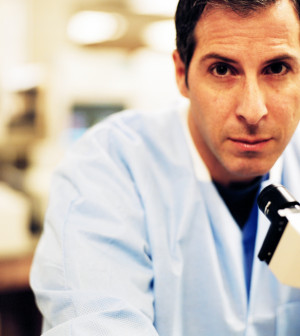- Could Your Grocery Store Meat Be Causing Recurring UTIs?
- Are You Making This Expensive Thermostat Error This Winter?
- Recognizing the Signs of Hypothyroidism
- 10 Strategies to Overcome Insomnia
- Could Artificial Sweeteners Be Aging the Brain Faster?
- Techniques for Soothing Your Nervous System
- Does the Water in Your House Smell Funny? Here’s Why
- Can a Daily Dose of Apple Cider Vinegar Actually Aid Weight Loss?
- 6 Health Beverages That Can Actually Spike Your Blood Sugar
- Treatment Options for Social Anxiety Disorder
Many Smartphone ‘Fertility Apps’ May Not Work

A smartphone app probably won’t help you get pregnant or avoid pregnancy, researchers report.
“Smartphone apps are increasing in popularity because more and more women are interested in using natural or fertility awareness-based methods of family planning,” said study leader Dr. Marguerite Duane.
These women want “to feel empowered with greater knowledge of their bodies,” said Duane, an adjunct associate professor at Georgetown University School of Medicine in Washington, D.C.
But an analysis of nearly 100 fertility awareness apps found most don’t use accurate methods that are based on scientific evidence. Also, many have a disclaimer saying they shouldn’t be used to prevent pregnancy, Duane’s study found.
The researchers identified more than 95 fertility awareness apps on iTunes, Google, or Google Play. The investigators excluded 55 from evaluation because they either had a disclaimer against their use for avoiding pregnancy or did not use evidence-based methods.
Each of the remaining 40 apps was assessed on a five-point scale.
“Of those reviewed, 30 apps predict days of fertility for the user and 10 do not. Only six apps had either a perfect score on accuracy or no false negatives (days of fertility classified as infertile),” the researchers wrote.
“When learning how to track your fertility signs, we recommend that women first receive instruction from a trained educator,” Duane said in a university news release. She’s also executive director of the Fertility Appreciation Collaborative.
The study results were published June 30 in the Journal of the American Board of Family Medicine.
More information
The U.S. Department of Health and Human Services has tips if you’re trying to conceive.
Source: HealthDay
Copyright © 2026 HealthDay. All rights reserved.










